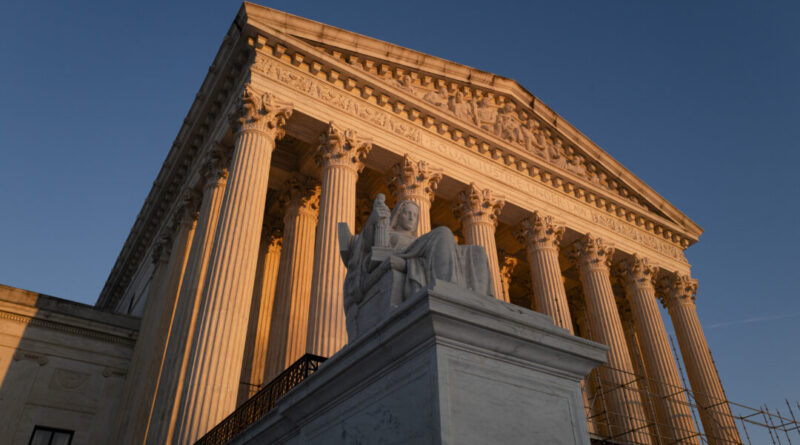DOJ Encourages Supreme Court to Allow Trump to Dismiss Labor Board Members
The submission was made a week following the Supreme Court’s temporary suspension of lower court rulings that barred the dismissal of two Biden appointees.
On April 16, the Department of Justice formally requested the Supreme Court to obstruct lower court decisions that impeded President Donald Trump from terminating members of independent labor boards.
The administrative stay granted by Roberts allowed the justices additional time to deliberate on the emergency application from the Trump administration seeking to impose a block. This stay was approved on April 9, mere hours after it was requested, and Roberts provided no explanation for his ruling.
“It determined that the President is required to have cause to dismiss the leaders of executive agencies that govern private employment relationships and oversee elements of federal employment, thus compelling the President to continue delegating substantial executive authority to primary executive officers whom he views as unfit to exercise it. Those judgments were profoundly misguided and ought to be stayed.”
Restoring principal officers represents “a serious affront to the President’s capacity to manage the Executive Branch,” he asserted. “Prior to this Administration, no federal court had mandated the reinstatement of a principal executive officer dismissed by the President.”
Wilcox was appointed by President Joe Biden to the National Labor Relations Board (NLRB) in 2021 following Senate confirmation. She was reappointed in 2023.
The NLRB is responsible for addressing complaints regarding employers involved in unfair labor practices under the National Labor Relations Act.
Trump initiated her dismissal on January 27, notifying her via email.
The email asserted that the NLRB was “not presently fulfilling its duty to the American people,” and that it would be better positioned to align with administration goals “with personnel of [Trump’s] own selection.”
The email expressed that Wilcox “had not, in [Trump’s] judgment, been operating in a manner consistent with the objectives of [his] administration.”
Wilcox subsequently filed a lawsuit in federal district court in Washington, achieving a summary judgment on March 6 that declared her removal as “unlawful” and affirmed that she “remains a member” of the NLRB who can only be removed by the president for reasons established in the statute that governs the board.
The court dismissed the administration’s claim that the tenure protection stated in the statute contravenes Article II of the Constitution, which delineates the powers of the president.
The district court noted that it was bound by the precedent set in Humphrey’s Executor v. United States (1935), wherein the Supreme Court ruled that President Franklin Roosevelt unlawfully terminated the head of the Federal Trade Commission, an independent executive agency, without cause.
It determined that the executive branch is not “strictly unitary,” and that the president’s removal authority over officials “has never been regarded as unrestricted,” according to the district court.
Harris, appointed by Biden to the Merit Systems Protection Board (MSPB) in 2022 following Senate confirmation, was promoted to chair the board in 2024.
Trump dismissed her on February 10, with the White House informing her by email that her position was “terminated, effective immediately.”
Harris initiated legal action, and on February 18, a federal district court granted a temporary restraining order that restored her employment at the board.
On March 4, the district court awarded Harris summary judgment, reinstating her as a member of the board, but not in her capacity as chairman, based on the application.
A motions panel from the U.S. Court of Appeals for the District of Columbia Circuit then temporarily stayed the rulings of the lower court while awaiting appeal. Shortly after, a divided full circuit lifted the stay that the panel had ordered, according to the application.
In its application, the government contended that Article II provides the president the authority “to remove, at will, members of multimember boards with significant executive power, such as the NLRB and MSPB.”
Supreme Court precedents “also establish that district courts lack the authority to issue injunctions or declaratory judgments that countermand the President’s removal of executive officers,” the application indicated.
Meanwhile, on April 15, Harris and Wilcox submitted responses to the application arguing for their reinstatement.
She urged the high court to deny the application and allow the D.C. Circuit to conduct an accelerated oral argument in the case on May 16.
“The Executive branch holds no legitimate interest in completely dismantling an adjudicatory body established by Congress,” the brief stated.
Dismissing Wilcox would leave the board without a quorum of three members, halting its appeals process.
The Supreme Court may act on the president’s emergency application at any moment.





